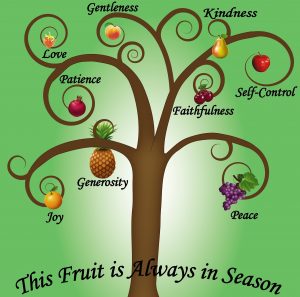Be Kind to Yourself
Therapy2Thrive® Pleasanton
925-998-3392
“Be Kind To Yourself”
In the many years I have had the honor to do this work I have noticed some themes that come up over and over with my clients regardless of their age, cultural background, or their belief systems. One deeply impactful commonality is an experience that harsh self-criticism somehow leads to growth and self-improvement. Over and over I hear my client’s self-criticism as a constant in their lives and it has somehow been taught to them that the more they are “aware” of their faults the more they will be motivated to change them. Although there is some real value in self reflection, it usually develops into a pattern of constantly calling oneself out over every perceived misstep or any lack of absolute success where over a period of years this pattern develops into a deeply held experience of only what we do not do well enough at.
What I see is a great deal of harm this brings into my client’s lives. I have not seen a person’s constant berating of themselves do anything beneficial but rather it clearly contributes to an awareness and strong feeling that one is never “good enough”, that our efforts always fall short, that we have not and are likely to never achieve our hopes or meet our family or professional expectations. The more I explore this with my clients I find that for so many of us, our internalized self-criticism has become such a constant that we are mostly unaware this is the way we treat ourselves.
Most often, my clients share with me this is the way they have always felt about themselves and although it doesn’t mean they cannot see some good in themselves it usually means that what they mostly feel and experience is that they did not do well enough. In essence, their awareness of themselves has become a constant internal feedback loop of how they let others down, didn’t do enough, aren’t good enough, weren’t smart enough, etc.…
This has powerful fallout in our lives and contrary to what so many of us seem to believe (that the self-criticism motivates us to do better), it actually contributes to depression, anxiety, low or non-existent self-esteem, and to our struggles in relationships with others.

When I am working with this in the counseling room I often have my clients who are unconsciously doing this to themselves try this exercise: I ask them to share with me some of the most common ways they judge
or criticize themselves and we get very specific on the words and language their inner voice uses to criticize. Then, I ask them to just notice how many times in just one week they give this message to themselves. I ask them to try not to change or alter it but rather just to take notice of how often that self-criticism is present. After trying this, my clients most often come back and share that they were shocked that as they became consciously aware of their constant self-criticism, and took notice of it, they realized it is an almost constant message they give to themselves.
As we explore and work on this issue in the counseling room we usually find that the harsh self-judgment and self-criticism not only does not usually not hold true but often these beliefs are based on very messages or understandings clients took in about themselves as kids. Those beliefs are sometimes dispelled immediately as clients say them out loud as it becomes clear that the criticisms are inaccurate or just plain untrue.
This gives us the chance to make a shift in how they talk to themselves and how they feel about who they are in the world. This is often a turning point in the counseling room as clients are then empowered to make significant internal change that impacts almost everything in their lives.
Many years ago after working on this issue with a client our time in session was up and as she left the room I implored her “be KIND to yourself”. My hope in that moment was to urge her that she has the ability to be kind to herself rather then harsh and critical. As time has gone on, it has become something I say to clients at the end of most sessions and although most of my client’s don’t realize it, I hope to communicate in our last seconds together that rather then beating themselves up all the time, they are worthy of love, encouragement, gentleness, and hopefully of kindness.
